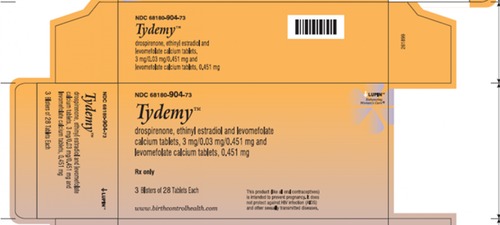EV Mandates Face Renewed Pushback From Car Dealerships

Table of Contents
Financial Concerns and Infrastructure Readiness
Dealerships are voicing strong concerns about the substantial financial burdens associated with adapting to an EV-centric market. These concerns fall into two main categories: investment in EV infrastructure and the impact on profit margins.
Investment in EV Infrastructure
The transition to selling and servicing EVs requires significant upfront investment from dealerships. This includes:
- High initial investment in fast-charging stations and specialized tools: Installing fast chargers requires considerable capital outlay, and dealerships need specialized tools and equipment to service EV batteries and other components, unlike traditional internal combustion engine (ICE) vehicles.
- Lack of government support for infrastructure upgrades specifically for dealerships: While some government incentives exist for EV adoption, many dealerships feel that insufficient support is directed towards helping them upgrade their facilities to handle EVs. This lack of targeted funding creates a major barrier to entry for many.
- Concerns about return on investment (ROI) for EV-related infrastructure: Dealerships are understandably hesitant to invest heavily in new infrastructure without a clear understanding of the potential return on their investment, especially given the uncertainty surrounding future EV sales and service demands.
Impact on Profit Margins
The shift to EVs presents a significant challenge to the established business model of many dealerships. The profit margins for servicing EVs are often lower than those for ICE vehicles. This is due to several factors:
- Reduced profit margins from EV servicing compared to ICE vehicle servicing: EVs have fewer moving parts than ICE vehicles, resulting in less frequent and less complex maintenance requirements, leading to lower service revenue.
- Potential for decreased parts sales due to EVs' simpler mechanics: The simpler mechanics of EVs translate to lower demand for replacement parts, another hit to traditional dealership revenue streams.
- Uncertainty about future revenue streams with the shift to EVs: The long-term profitability of EV servicing remains unclear, creating financial insecurity for many dealerships.
Consumer Demand and Market Readiness
Even with the environmental benefits and technological advancements, dealerships highlight significant roadblocks related to consumer demand and market readiness.
Range Anxiety and Charging Infrastructure
A major hurdle to widespread EV adoption is consumer hesitancy, often fueled by "range anxiety"—the fear of running out of battery power before reaching a charging station. Dealerships point to:
- Consumers' concerns about the distance EVs can travel on a single charge: The limited range of many current EVs compared to gasoline-powered cars remains a significant concern for many potential buyers.
- Uneven distribution of public charging stations in many regions: The lack of a readily available and reliable public charging infrastructure, especially outside major urban areas, exacerbates range anxiety.
- Lack of consumer confidence in long-distance EV travel reliability: The inconsistent availability of charging stations and potential for long charging times impacts consumer confidence in taking longer journeys in EVs.
Lack of Consumer Awareness and Education
Dealerships also believe that a lack of consumer awareness about EVs and their capabilities is hindering broader adoption. They emphasize the need for:
- Improved public education campaigns on EV technology and benefits: Targeted campaigns to educate the public about the advantages of EVs, addressing misconceptions and building consumer confidence.
- Dealerships' role in educating customers about EV features and charging solutions: Dealerships are ideally positioned to provide this education and guidance, but require support and training to effectively do so.
- Lack of standardized information about EV capabilities and charging networks: A clear and consistent source of information about different EVs, their range, charging times, and access to charging networks, is crucial for building consumer confidence.
Government Regulations and Support
Dealerships argue that current government regulations and support are inadequate to facilitate a smooth transition to EVs.
Unrealistic Mandates and Timelines
Many dealerships find the aggressive timelines set by EV mandates to be unrealistic, given the current challenges. This includes:
- Concerns over the feasibility of meeting rapid EV sales targets: The speed at which some governments are mandating EV adoption outpaces the rate at which infrastructure, consumer confidence, and dealership readiness can adapt.
- Need for more realistic timelines to allow for smooth market transition: A more gradual approach, allowing time for infrastructure development and consumer education, is considered necessary.
- Calls for greater government support for dealer transitions to electric vehicle infrastructure: Increased financial incentives and technical assistance programs for dealerships are crucial to support this transition.
Lack of Consistent Policy and Incentives
Inconsistency and inadequacy in government policies and incentives also present major hurdles. Dealerships highlight:
- Inconsistent regulations across different regions: Differing regulations across states or countries create confusion and complicate investment planning for dealerships.
- Inadequate government subsidies and tax breaks for EV adoption: Insufficient incentives for both consumers and dealerships make the transition more challenging and less attractive.
- Lack of clarity on future regulations and support measures: Uncertainty about future policies creates hesitation for investment and long-term planning.
Conclusion
The renewed pushback against EV mandates from car dealerships highlights the complex challenges involved in a rapid transition to electric vehicles. Addressing the financial concerns of dealerships, improving charging infrastructure, boosting consumer confidence through education, and creating realistic and consistent government policies are crucial steps to ensure a successful and equitable transition. Understanding these concerns, and proactively addressing them, is essential to fostering a sustainable future for the automotive industry and achieving the broader goals of widespread EV adoption. Failure to acknowledge the concerns regarding EV mandates could further hinder the transition and ultimately slow progress toward a cleaner, more sustainable transportation future. Therefore, open dialogue and collaborative solutions are essential to successfully navigate this transition and effectively implement EV mandates.

Featured Posts
-
 Sunderland Player Transfer Man Utds Interest And Potential Exit
May 14, 2025
Sunderland Player Transfer Man Utds Interest And Potential Exit
May 14, 2025 -
 Nationwide Recall Alert Walmarts Igloo Coolers Linked To Fingertip Injuries
May 14, 2025
Nationwide Recall Alert Walmarts Igloo Coolers Linked To Fingertip Injuries
May 14, 2025 -
 Canada Wide Recall Dressings And Birth Control Pills Recalled In Ontario
May 14, 2025
Canada Wide Recall Dressings And Birth Control Pills Recalled In Ontario
May 14, 2025 -
 Chelsea Outpaces Manchester United For Jobe Bellingham
May 14, 2025
Chelsea Outpaces Manchester United For Jobe Bellingham
May 14, 2025 -
 Captain America Brave New World Disney Release Date When To Stream
May 14, 2025
Captain America Brave New World Disney Release Date When To Stream
May 14, 2025
Latest Posts
-
 Madrid Open Potapova Stuns Zheng Qinwen
May 14, 2025
Madrid Open Potapova Stuns Zheng Qinwen
May 14, 2025 -
 Paolinis Dubai Run Ends In Loss To Sabalenka
May 14, 2025
Paolinis Dubai Run Ends In Loss To Sabalenka
May 14, 2025 -
 Zheng Qinwens Madrid Open Loss Upset By Potapova
May 14, 2025
Zheng Qinwens Madrid Open Loss Upset By Potapova
May 14, 2025 -
 Sabalenkas Dubai Defeat Paolinis Reign Ends
May 14, 2025
Sabalenkas Dubai Defeat Paolinis Reign Ends
May 14, 2025 -
 Italian Open Update Sinner Advances Osaka Exits
May 14, 2025
Italian Open Update Sinner Advances Osaka Exits
May 14, 2025
